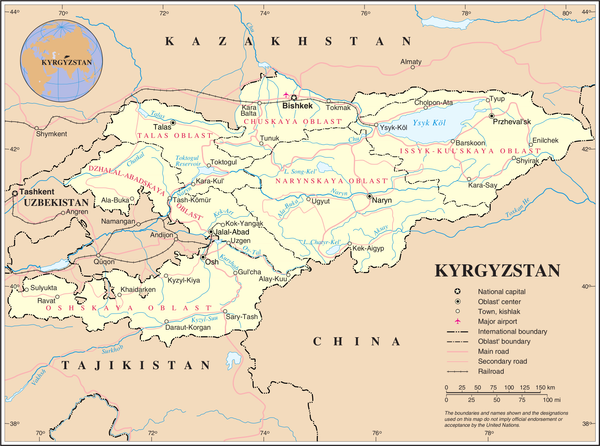Kyrgyzstan’s long fight for generic drugs is finally paying off
By Aibek Mukambetov
It wasn’t until several years after the birth of the couple's daughter that they learned the mother had contracted the hepatitis C virus (HCV) during an operation shortly after her pregnancy.
They also soon learned that, in Kyrgyzstan, the best options for treating hepatitis C were only for the rich—an effective medicine called Pegasys (pegylated interferon) would cost as much as $25,000 for the treatment cycle. But help came in the nick of time—a representative from Kyrgyzstan’s Ministry of Health was going to India to secure access to an affordable generic version of sofosbuvir, a new hepatitis C treatment. After a month of treatment on these generics, the mother's viral load was down to zero.
They were lucky—there are 220,000 other people in Kyrgyzstan infected with hepatitis C, the vast majority of whom can’t afford $25,000 worth of treatment.
Sofosbuvir is on the WHO Model Lists of Essential Medicines. At the end of 2015, three generic versions of this high-efficiency drug were registered in the Kyrgyz Republic. Two versions are made in India and one in Egypt, all permitted by Gilead Sciences, the drug company holding the patent. Supply of these generics in Kyrgyzstan is planned for the near future.
The introduction of the Egyptian drug was made possible by amendments to Kyrgyzstan’s patent law, which were adopted by the parliament after advocacy work by patients suffering from hepatitis C, as well as civil society organizations, including the Open Society Foundations.
The amendments to the patent law not only helped to resolve the issue of HCV treatment, but will also facilitate the supply of high-quality generic drugs for the treatment of cancers, multidrug-resistant tuberculosis, and other diseases in the future. The previous revision of the law had made it impossible to import high-quality generic versions of drugs protected by manufacturers’ patents. High-quality generics have the same efficiency as “original” drugs, but are affordable for far more patients.
When we began this work in 2011, we were criticized by various organizations and experts who said that HCV treatment will always be expensive for patients in poor countries. But beginning this year, a full three-month HCV treatment course of generic sofosbuvir will cost about $1,000—a small fraction of the cycle of branded pegylated interferon. In addition, the sofosbuvir generics have fewer side effects and are easier to administer than pegylated interferon’s intramuscular injection. Moreover, the new drugs boast 95 percent curability of any HCV genotype, whereas the old treatment regimen curability rate was as low as 45 percent.
Patient organizations and the Open Society Foundations will continue working to reduce drug prices and to secure state funding for treatment of vulnerable groups. The lives of people suffering from HCV and other diseases shouldn’t hang in the balance when affordable generic medicines are merely a legislative victory away.
Click here to read the full article.
Keep up-to-date with drug policy developments by subscribing to the IDPC Monthly Alert.
Thumbnail: Wikimedia Commons
